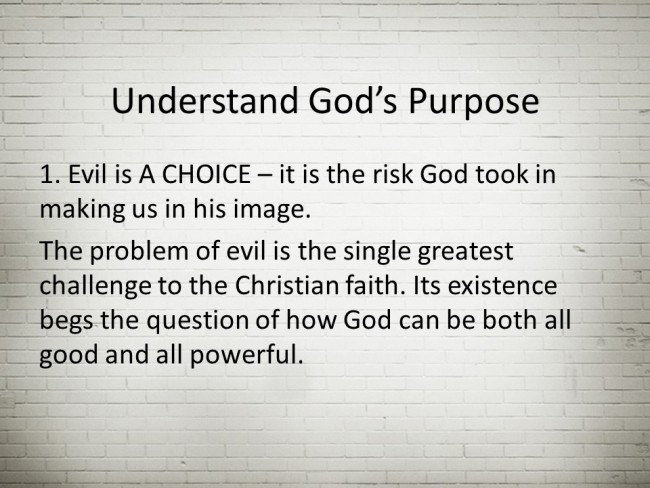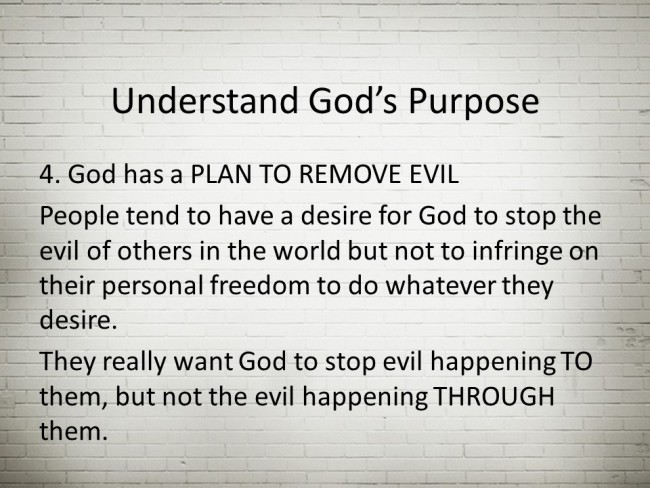This message called, New Testament Discipleship, comes from 2 Timothy 1:3-12.
Christianity is not a solitary sport, it is a team effort. When we come to faith in Christ, we join a global and a local community, in essence, this community is a timeless spiritual family. When you join a family, you are not alone. People look out for one another. So, how are lives connected in corporate worship? In this room we are all pretty much spectators. It is in a small group that we become participants.
I love small groups and I always encourage people to get involved and join one. It is easy to shop around here at King’s Grant because we have so many groups from which to choose. If you want to explore a group in which to get involved, let me know.
I can talk a whole lot about why small groups are important, but time is limited and I want to go through this text. While Skip used this text two weeks ago, I plan to go in a total different direction. We can talk about timothy and his family, but I prefer to talk about Timothy’s and Paul’s connection through being a part of a faith community. Let’s get started…
1. Reassurance (2 Timothy 1:3) – I thank God, whom I serve with a clear conscience the way my forefathers did, as I constantly remember you in my prayers night and day.
The text tells us that Paul was praying for Timothy, and that he likely had confidence in him. The first thing you notice is the relational aspect of these to followers of Christ. Those who are connected to Jesus pray for one another. In a small group, we are pilgrims on the same journey, giving support, encouragement, and challenge to those in the group. It is a blessing to be involved with fellow believers on a similar journey.
Speaking of blessing, we have the potential to bring out the best in those whom we bless. From the very beginning, God intends for his people to bless others (Genesis 12:1-3, Galatians 3:8). (Smalley and Trent, The Blessing, 1986). What does a blessing entail? How do we bless others? Imagine doing all of the following in a small group…
- Expressing Unconditional Love: agape is God’s kind of love, you cannot earn it nor can you lose it. It is not a love that says, “I love you because…” or “I will love you if…” – it is a love that says, “I love you anyway.” There is security in this sort of relationship.
- Uttering Spoken Words: a blessing is only a blessing when it is spoken. It matters not how much you care about someone if you never let them know about it. When you invest into other people, you cannot keep silent.
- Articulating High Value: Perhaps you saw the movie called, “The Help.” The main character is a black maid who worked for this 1960’s white southern household. This strong woman had a great statement that she repeated in the film, and the little white girl was able to quote it back to her, “you is kind, you is smart, you is important.”
- It is like a family reunion, people are usually speaking to each other and talking all over the place but in that final hour people preparing for their goodbyes and are expressing the most important things that need to be said.
- Picture the undeveloped traits or habits or qualities in other people that can grow in their heart. Our desire is for them to be the best they can be for the kingdom’s sake.
- When we value others, we bring out their best.
- Picturing a Special Future: You can do this and thereby bring joy to people. You will make an impact on the kingdom of God and will be encouraging them to make a difference as well.
- Picturing a special future is like how Jesus encourages us by mentioning a wonderful statement at the end of time, “well done good and faithful servant,” which bring out the best in our lives, a desire for transformation into godly men and women.
- Kim is a hospice chaplain and I often remind her, usually when she leaves the house in the morning, or after a long and difficult day or week, that she is making a difference in the lives of people, especially at this critical stage in their lives, and the lives of their family members and staff.
- Disciplining When Needed: You may be thinking that I am just talking about parents and children, but discipline is greater than just a family because as followers of Jesus, we will fail many times in our lives. We need God’s discipline, and often that will come through fellow believers whom we trust and we know they have our back. We are to balance praise and correction. God deals with us rather than ignoring the wrong behavior; the same is true for our brothers in Christ. We cannot ignore behavior that goes against the teachings of the Bible. Ok, let’s move on to…
2. Reminiscence (2 Timothy 1:4-5) longing to see you, even as I recall your tears, so that I may be filled with joy. 5 For I am mindful of the sincere faith within you, which first dwelt in your grandmother Lois and your mother Eunice, and I am sure that it is in you as well.
Two things are noticed here…
- Tears (2 Timothy 1:4) What Paul desired, (he longed to see Timothy again).
- Testimony (2 Timothy 1:5) What Paul described…
- The Reality of Timothy’s faith (2 Timothy 1:5a) (mindful of the sincere faith he had).
- The Roots of Timothy’s faith (2 Timothy 1:5b) (which came through his mother and grandmother)
- The Reinforcement of Timothy’s faith (2 Timothy 1:5c) (I am sure it is in you as well). It is important to think about from where we have come, and how faith entered our lives. It is very good to share with others in your small group about how you came to faith in Christ, and reaffirm the faith we see in others.
3. Refocus (2 Timothy 1:6-7a) For this reason I remind you to kindle afresh the gift of God which is in you through the laying on of my hands. 7 For God has not given us a spirit of timidity…
- Stir up the Gift of God (2 Timothy 1:6) (Kindle afresh the gift of God) Small groups are training ground for living life on purpose, being on mission, and living a missional life.
- Suppress the Fear (2 Timothy 1:7a) (we don’t have a spirit of timidity or fear). There is strength in numbers, so your small group will give you the encouragement you need to stand strong in the face of the struggles of life. Finally, we are to
4. Remember (2 Timothy 1:7b-12) Remember what, you ask?
- Spirit (2 Timothy 1:7b) (not a spirit of fear, but of power and love and discipline). The Spirit is the one whom Jesus promised to send that would fill us with the power to change the world (Acts 1:8). We must remember that in a small group, we do not depend upon our own power, creativity, teaching, or anything, but we allow the power of the Spirit to flow through us.
- Son (2 Timothy 1:8) Therefore do not be ashamed of the testimony of our Lord or of me His prisoner, but join with me in suffering for the gospel according to the power of God,
- Don’t be Ashamed (2 Timothy 1:8a) – of the testimony of Jesus. We know what Jesus did to secure our salvation, so never be ashamed of the gospel story. We don’t need to apologize to unchurched people about what we believe, especially when it goes against what the intolerant left mainstream culture promotes.
- Don’t be Afraid (2 Timothy 1:8b) – of Paul or Prison. When our society labels us intolerant and narrow-minded, and they come after the church and Christians, don’t be afraid to join with Paul in the suffering for the gospel. We stand stronger with a small group to help us navigate through the dark waters of modern culture.
- Salvation (2 Timothy 1:9a-b) who has saved us and called us with a holy calling,
- Our Conversion (2 Timothy 1:9a) It is important to understand that the purpose of a small group is to know Christ and make him known. The goal is not just a place to study the Bible, but to share life together, on purpose, with an intentional missional mindset. How can we get one more person to be a part of our group? One we get to a certain size, when will we birth another group where we can both continue reaching and teaching people? It is all about life transformation, and conversion is a great target. After conversion, we embrace our calling…
- Our Calling (2 Timothy 1:9b) Paul wrote about a holy calling. What does God want from you? What mission or purpose has he planted in your heart that only you can achieve? How will you walk in a manner worthy of the calling of Christ, and therefore make an eternal impact on the kingdom of God? BUT, our calling leads to service…
- Service (2 Timothy 1:9c-10) not according to our works, but according to His own purpose and grace which was granted us in Christ Jesus from all eternity, 10 but now has been revealed by the appearing of our Savior Christ Jesus, who abolished death and brought life and immortality to light through the gospel,
- Our Commission (2 Timothy 1:9c). We don’t do any of this in our own strength or according to our own works, but according to the power of Christ. Remember that the body of Christ works together to accomplish the will of God. Each small group has the potential to embrace the commission and seek ways to be on mission together, and encouraging each of us to make an eternal impact.
- Our Commander (2 Timothy 1:10). We recognize that the Great Commission comes from our Great Commander. Jesus is the Savior, who abolished death and brought life and immortality through the gospel. Jesus causes our service to make sense. Non-Christians serve in order to give back (it is ME focused), but we “give back” with a purpose (because is it God focused). Serving can lead to…
- Servants (2 Timothy 1:11) for which I was appointed a preacher and an apostle and a teacher. This verse reminds us that Paul was a Preacher and Apostle.
- What is a Preacher? It is not just someone who stands up here and delivers a sermon. The preacher (kay’-roox) really means, “a herald or messenger” or God’s ambassador (2 Corinthians 5:20). THAT is something that we all can do. We have a story to tell.
- What is an Apostle? The apostle (a-po’-sto-los) means, “a delegate, a messenger, one sent forth with orders.” The church is made up of believers, and we are literally “sent-out-ones.” Understanding this fact awaken us to the great possibilities of impacting the kingdom of God. Don’t limit God in what he can do in your life. Be open to go in whatever direction he has set before you!
- Suffering (2 Timothy 1:12) For this reason I also suffer these things, but I am not ashamed; for I know whom I have believed and I am convinced that He is able to guard what I have entrusted to Him until that day.
- Confidence (2 Timothy 1:12a) “For this reason” expresses Paul confidence. All that he has gone through makes sense when he had the proper perspective. Remember this letter was written at the very end of Paul’s earthly life. He was expecting execution any day. In the midst of this uncertainty, Paul expresses solid confidence.
- Conviction (2 Timothy 1:12b) Paul is convinced, and knows for certain that he is in the hands of Jesus. What has Paul entrusted to Jesus until THAT DAY?Perhaps it is either the day of Christ’s glorious return or maybe the day of Paul’s execution. His life. Jesus is able to guard his life, so what have we to fear?
All throughout this passage I see the blueprints for small groups. The purpose of today is to discover what it takes to encourage sticky faith in our kids and in the lives of other people. Small groups encourage stick faith, and the family is God’s original small group. Get involved in one and live life in the community of faith.
The next steps at the bottom of your outline will help you to remember what community has been in your life in the past, and perhaps you will recognize the need to have a more connected community in your current situation.
Next Steps: Make it practical…
1. For whom do you pray on a regular basis? (2 Timothy 1:3)
2. Who has had the biggest role in your spiritual development? (2 Timothy 1:3)
3. What gift has God given to you? (2 Timothy 1:6)
4. How is the Spirit’s power, love, & self-discipline shown in your life? (2 Timothy 1:7)
5. Why has God called you to a holy life? (2 Timothy 1:9)
6. In what ways are you called to be a preacher and apostle? (2 Timothy 1:11)
7. When was there a time that you suffered for the gospel? (2 Timothy 1:12)
[print_link] [email_link]




